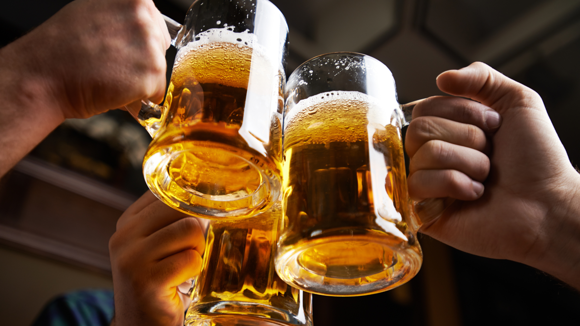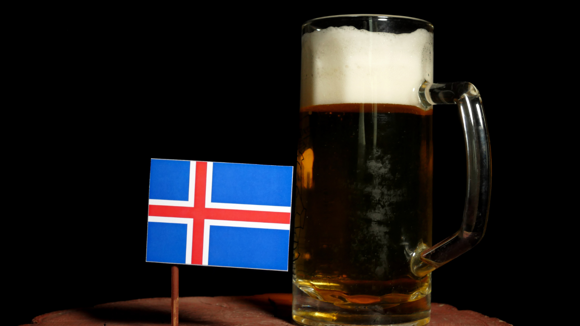Why Was Beer Banned in Iceland?

Picture this - it’s Friday night in Reykjavík and you fancy heading to the pub to enjoy a refreshing pint. But wait a minute - beer is actually illegal! It might sound like something from the middle ages, but actually, it was the reality for a large part of Iceland’s modern history.
That’s right - prohibition was big in Iceland. This small island was actually the first country in Europe to bring in prohibition, and it was one of the longest periods of the law in history. In fact, beer was prohibited for some 75 years! But what makes this so peculiar is that for much of the ban on beer, other alcohols were totally legal, while beer remained illegal until 1989. The history of alcohol in Icelandic culture is, as a result, a fascinating one.
The Isolation of Iceland
The first factor that affected Iceland’s relationship with alcohol is its location. As one of the most northern countries in the world, trade from countries that produced large quantities of alcohol was not always the easiest mission. As a result, alcohol was not regularly consumed before the 1900s. Instead, it was consumed mainly on occasions, like funerals or weddings. This meant that when alcohol was first banned, there was not a huge outcry among locals.
Prohibition in Iceland
Spreading across to Europe from the early United States, prohibition was voted in via referendum in Iceland in 1909 and in place by around 1915. The population of Iceland was small, less than 100,000 people at that time, and the voting pool was made even smaller by the fact that women and those under 25 were not eligible.
Alcohol has a bad reputation, associated with violence and public nuisance behaviour, so it was easy for this new social movement to pass through the small voting population. However, this ban on all alcohol was immediately difficult to enforce, even on so few inhabitants, with smuggling and home brews quite common from the start.

Trade Connections
With the technological advancements of today, greenhouses in Iceland are growing more and more fruits and vegetables every year. But back in the 1900s, exports from Iceland were largely sea-based. A major trade deal between Iceland and Spain caused friction in 1921, with Spain exporting wine in return for Iceland’s fish.
The importance of the export and this crucial trade partner meant that after just 7 years of the laws banning alcohol being in place, the import of Spanish wines was permitted in 1922. While the sale of it within the country was highly regulated, the power behind the law was instantly weakened.
Politics and Beer
After the import of Spanish wines was allowed, the repeal of prohibition (or what was left of it) was highly popular in Iceland. A large percentage of eligible voters, which was a much larger pool now that women were allowed to vote and the voting age had been lowered, were keen for the law to be revoked. However, symbolic politics had a large part to play.
In parliament, politicians felt that beer was, in a way, a “gateway” alcohol, leading to heavier and more consumption. The logic behind this argument was questioned at the time, not only because hard spirits were being legalised over beer at the time. The legalisation of spirits was justified by the suggestion that spirits were more “culturally significant” to Iceland than beer, and beer remained a political sacrifice for many years to come.
In fact, find out about Iceland’s national drink, a spirit called Brennivín.
Independence of Iceland
Another factor that influenced the slow legalisation of beer in Iceland is the matter of Denmark. After years of being under Danish rule, Iceland truly became independent in the 1900s. Denmark has historically been seen as a beer-drinking country with beer-drinking people, and Iceland sought to remove itself from this now officially foreign culture. Whether political or a more social movement, Iceland wanted to step out of Denmark’s shadow.

Legalisation of Beer
Decades of complaints against the legislation led up to 1988 when the legislation crumbled under the weight of logic and public appeal. By early 1989, bars and restaurants were all serving beer across Iceland and beer was permitted to be sold in liquor stores everywhere.
Since its re-entry into Icelandic life, beer has come back in a big way. Breweries and microbreweries can be found across the country, meaning that the capital of Reykjavík is filled to the brim with unique and interesting craft beers. If you’re a bit of a craft beer connoisseur, Bjórgarðurinn (The Beer Garden) in central Reykjavík is the place for you. Browse the menu today and make sure to visit when you’re next in town!